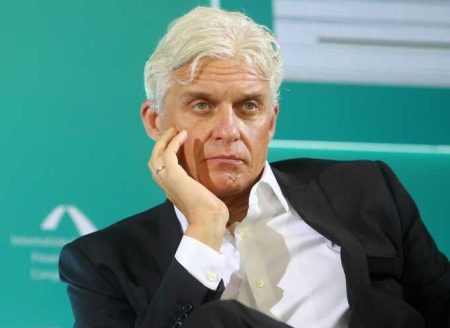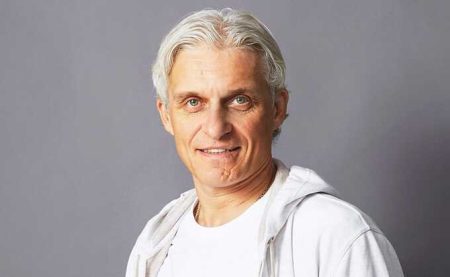After resisting for months, Boris Johnson announced he is quitting, triggering the process of choosing a new conservative leader with over a dozen candidates competing for the position.
Traditionally, the most popular member of the current parliamentary majority will lead the future group of ministers.
After stepping down, Boris Johnson became a politician with no future who is temporarily in charge. British newspapers mockingly mention the departure of Boris Johnson as good news and express uncertainty about his successor.
ELECTION OF THE PRIME MINISTER
The individuals vying for the top party post are seen as weak candidates, with no one of the caliber of Margaret Thatcher or Winston Churchill on the horizon. This indicates a pattern of negative selection in Britain over recent decades.
A previous article in the newspaper Sovershenno Sekretno #9 (2022) explained that there is no separate position of prime minister in the UK, but rather the post is referred to as “chief adviser to the monarch”. Therefore, it is misleading when political scientists refer to prime ministerial elections. According to British tradition, the cabinet head is appointed by Her (His) Majesty from the most popular lower house parliament members. The use of 'traditions' instead of a clear Constitution to govern is unique to Britain but contrasts with the preference of truly democratic countries to adopt a Basic Law via referendum.
The public can vote for parties in the lower house of parliament, and the Conservatives, also known as Tories, have been traditionally winning the majority. The second-largest party, the Labour Party, is referred to as Her Majesty’s Loyal Opposition.
If the prime minister serves a full term, elections to the House of Commons occur every five years. However, if the prime minister resigns early, a vote is held within the winning party. The intense focus on the internal conservative faction intrigues the attention of the world.
WHY JOHNSON HAS BEEN DISLOVED
Boris Johnson is perhaps the most flashy British prime minister. However, as a chief adviser, he was loyal to the Crown despite his unusual appearance, rhetoric, and behavior. He always prioritized the interests of the Crown, which is a symbol of the state for any Englishman.
He made a mistake once during the pandemic by attending a party at Downing Street while the country was in quarantine. Political rivals used this to force his resignation.
It seemed unnecessary for Johnson to involve himself in Ukrainian affairs to the extent of making two visits to Kyiv, especially during a time when he was facing criticism at home. This raised doubts about his motives.
The difference in policy towards Russia and Ukraine between Boris Johnson and any new prime minister is insignificant. It's a broader British position, not just his personal stance. He fell out of favor for different reasons.
Johnson's rebellious nature, demonstrated through his appearance and behavior, contributed to his downfall. While not as extreme as Donald Trump, his dissent with British tradition may have led to demands for his removal by Buckingham Palace.
A government crisis in Britain led to over fifty civil servants, including more than ten ministers, leaving the Cabinet of Ministers in two days, expressing no confidence in Johnson and disagreeing with his leadership methods.
The scandal involving the deputy chief organizer of the ruling Conservative Party, Chris Pincher, who harassed two men in public while intoxicated, revealed that Johnson had appointed Pincher to high positions despite being aware of previous harassment cases.
Johnson set a record for the shortest tenure as British Prime Minister since 1900.
FAVORITES AND THEIR ATTITUDE TO RUSSIA
To date, the favorites of the election race are the Chancellor of the Exchequer (in our opinion, the head of the Ministry of Finance), an emigrant from India, Rishi Sunak, and the first woman in the chair of the British Minister of War, Penny Mordaunt. The head of the military department, Ben Wallace, had a chance, but withdrew his candidacy, and the well-known Foreign Minister Liz Truss, it seems, is unlikely to lead the party.
Purely intuitively, it seems that the new chief adviser to Her Majesty will be an Indian. If only because it is fresh and demonstrates today’s fashionable tolerance, as well as the rejection of the former colonial policy of Foggy Albion. On the other hand, Penny Mordaunt emphasizes in every possible way that she is Britain’s first defense minister – a woman. Thus, in the struggle for the premiership, two, so to speak, tolerances will converge.
At the same time, in the party Penny Mordaunt is more popular than Rishi Sunak, and according to public opinion polls, the Indian, on the contrary, is ahead of her. It is difficult to say whether such a rating will last until September 5, when elections are scheduled. Therefore, we do not insist on our forecast. In any case, with respect to Russia, neither under Prime Minister Sunak nor under Prime Minister Mordaunt, London’s policy will change. Helping Moscow lose in any conflict in every way is one of the pillars of British foreign policy, starting with the “Great Game” – the struggle for Central Asia in the 19th century, which was described by Rudyard Kipling.
In addition, the Prime Minister still does not determine the policy of Great Britain – this is the prerogative of Elizabeth II and Prince Charles. Her Majesty’s chief adviser is more like a technical, albeit very important, employee of Buckingham Palace, who is tasked for some time to defend the opinion of the Crown in her parliament.
It is for this honorary position that Penny Mordaunt and Rishi Sunak will fight in the fall. And it doesn’t matter to you and me who gets it.




